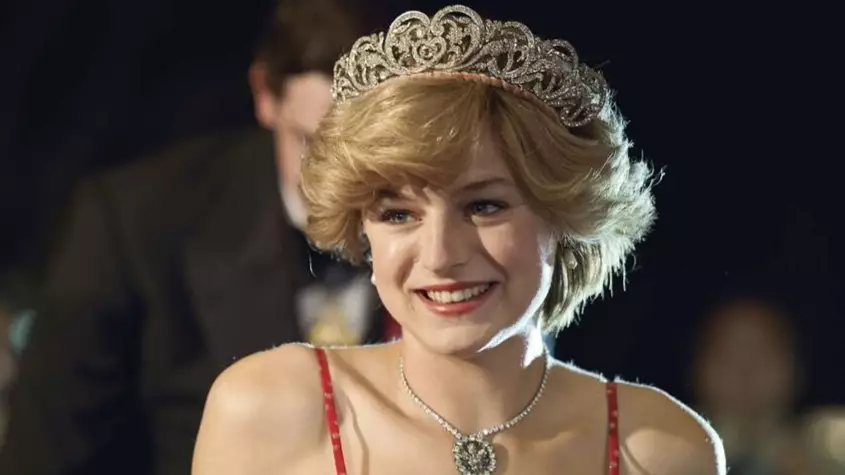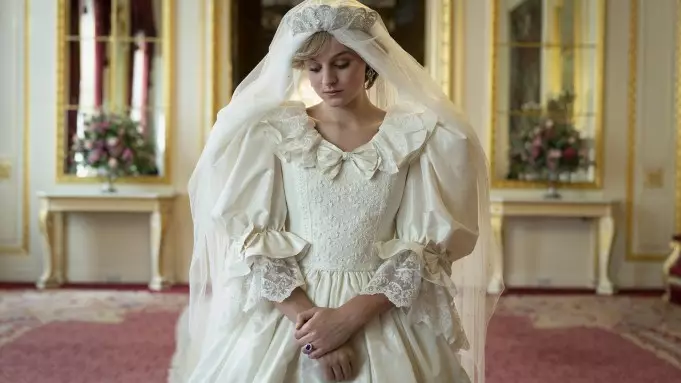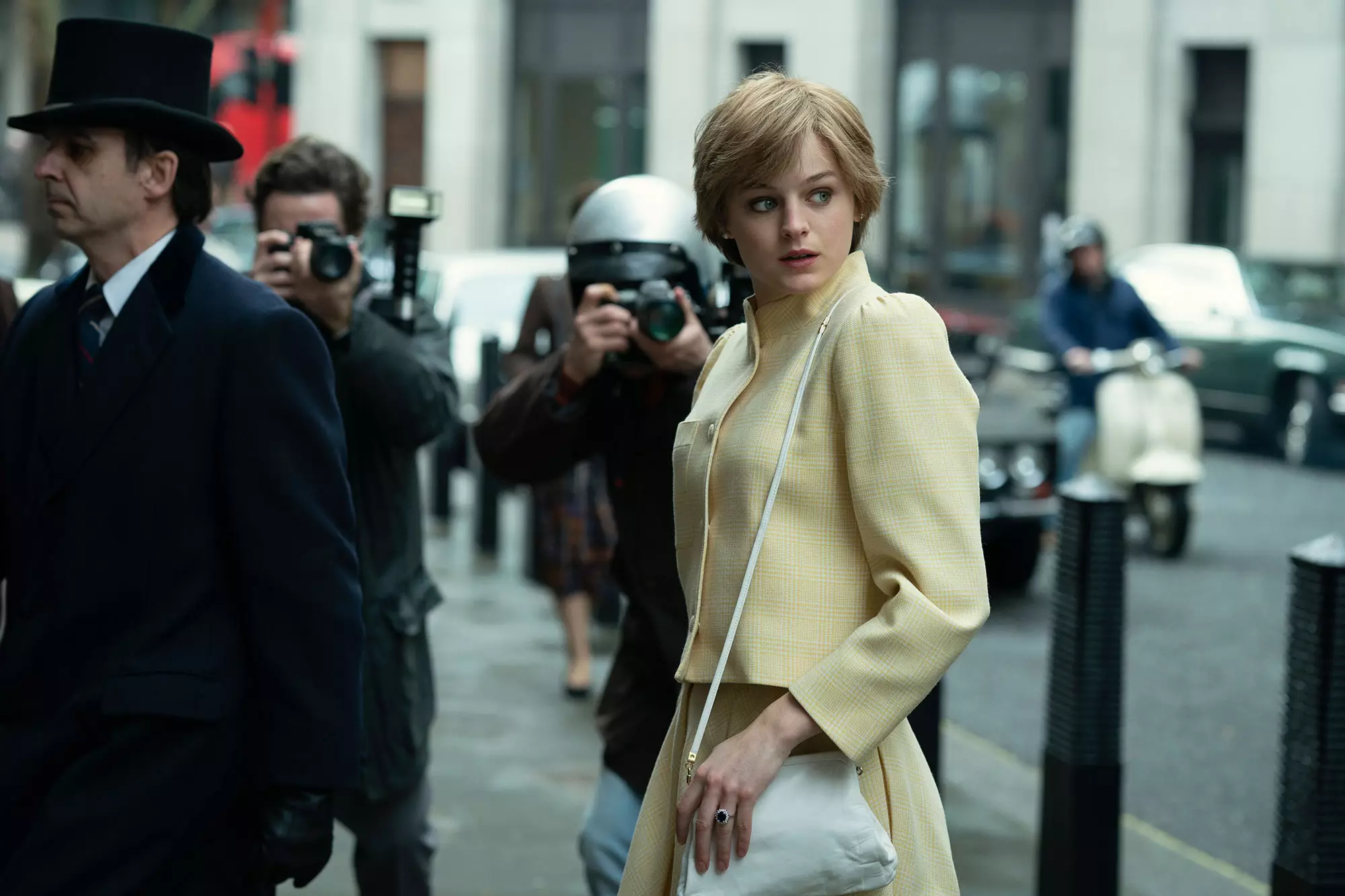
The hotly-anticipated fourth series of The Crown dropped on Netflix last week, with the latest series of the historic regal drama focusing on the tempestuous marriage between Princess Diana and Prince Charles.
The drama is a no-holds barred account of their relationship, and provides a sneak peek behind the curtains of one of the world's most famous relationships - and most high-profile infidelities.
In a bid to be as realistic as possible, The Crown has taken the decision to show Diana's struggle with bulimia nervosa - an eating disorder which is characterised by episodes of binge-eating following by episodes of "purging" or vomiting.
Advert
The third episode of the new season sees Diana (played by newcomer Emma Corrin) move into Buckingham Palace and documents her struggles with the new palace lifestyle.
At a later point in the series, after a difficult lunch meeting with Camilla Parker Bowles she is then seen devouring a pile of desserts before vomiting.

The episode does come with a trigger warning, which reads: "The following episode includes scenes of an eating disorder which some viewers may find troubling. Viewer discretion is advised.
Advert
"Information and resources for those struggling with eating disorders are available at www.wannatalkaboutit.com."
However, the graphic scenes have divided viewers over whether seeing Diana's condition is helpful, or just potentially triggering.
"Princess Diana's bulimia issues are portrayed quite graphically in this. Quite intense," one viewer wrote on Twitter.
Another wrote: "I've seen several people note how disturbing the scenes of her purging are. I'm not quite sure how I feel."
Advert
Speaking to Tyla, Beat's Head of Communications, Rebecca Willgress explained that those who are currently suffering from an eating disorder should avoid watching the programme entirely.
"Eating disorders are often misunderstood mental illnesses and thrive on secrecy," she said.
"We believe that accurate and non-glamourising portrayals of eating disorders in the media can be a helpful way to educate the wider public about the reality of them, as well as encourage anyone affected to seek help.
"As with every depiction of eating disorders, caution must be taken and we wouldn't advise anyone currently unwell to watch this or any other programme which centres around eating disorders. If someone unwell does choose to watch it, we strongly advise having a support network or source of help such as Beat to turn to if needed."
Advert
However, series creator Peter Morgan said he couldn't "just reference" Diana's struggle with an eating disorder.
"Not to represent [her battle with bulimia] would be to deny the former Princess of Wales some of the true complexity of her character," Morgan explained Vanity Fair.
"It never occurred to me that what we were doing was risky or unusual by showing her struggle with bulimia, because she had talked about it so much."
Research by the Priory Group believe 3.4 million people in the UK are affected by an eating disorder. The average age of onset for bulimia nervosa is 18-19 years old, with eating disorders having the highest mortality rates among psychiatric disorders.

Emma Corrin said she was keen to do the storyline justice when she initially read the scripts for The Crown.
Advert
"If we're going to show it we need to do it properly, otherwise I think it's unfair on people who experience it," she told Variety.
"It's an eating disorder. If that's going on in your life, it's symptomatic of other things and it's also not just a sideline. It comes into everything you do because it's triggered so much. If you're suffering from an eating disorder like bulimia, it's something you structure your day around, you're thinking about it at meals, after meals, and in between.
"Those were difficult scenes to film and I also feel like taking her to that place was a good thing. It gave me somewhere to go with her, but I was exhausted a lot those days coming off set because at the same time as you're playing someone who's fictionalised and obviously you're not feeling or thinking those things, it's your job to make yourself feel that way.
"Especially when you're stuffing your face with food, binge eating, it's hard to not let it affect you in some way.
A spokesperson for Netflix told Tyla: "The Crown producers worked closely with the eating disorder charity, Beat, to ensure that their portrayal of Princess Diana's bulimia was both accurate to the disorder and sensitively handled, and when viewers watch the series on Netflix they will see warning cards at the beginning of the episodes giving details of how to seek help if required."
If you have been affected by any of the points raised in this article, please contact Beat on 0808 801 0677, or email [email protected].
Featured Image Credit: NetflixTopics: The Crown, Netflix, Royal Family